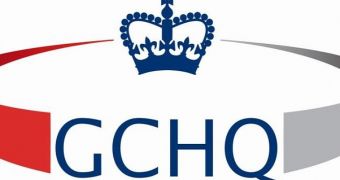The GCHQ, the British intelligence agency, has revealed a secret government policy that justifies the mass surveillance of UK users of Facebook, Twitter, YouTube and Google.
Charles Farr, the director general of security and counter terrorism, has issued a witness statement in which he explained how the law actually permitted intercepting tweets, Google and YouTube searches, as well as Facebook posts, as these communications were classified as “external communications.”
The Regulation and Investigatory Powers Act (RIPA) allows authorities to indiscriminately listen to or search through these types of communications.
For better clarification, these are those messages that are sent and received outside the British Islands, regardless of whether they passed through the area or not.
For example, Facebook has data centers in the United States and in Sweden, which means that they’re “outside the British Islands.” This means that any Facebook status update has to communicate with one of these data centers before returning, effectively leaving the UK.
RIPA allows all this data to be looked into regardless of whether there are reasons to suspect the owner of wrongdoing or not. Agents cannot look through the content by using keywords or terms that mention someone living in the United Kingdom.
The UK uses the threat of terrorism to justify the permission for such a blatant invasion of people’s privacy. Furthermore, Farr states that sharing the communications data from foreign intelligence partners, especially from the United States, has helped prevent terrorist attacks and serious crimes, something that the NSA has been saying for a year, but which has never been proven. As a matter of fact, in the case of the NSA, several groups that looked into the agency’s activities have failed to come up with a solid example where the collected data has helped prevent a terrorist attack.
Last month, the GCHQ was slapped with a legal complaint by several privacy activists groups after reports that the agency was using its hacking tools to infect computer and smartphones alike with malicious software. This allowed them to remotely hijack the user’s camera, as well as their microphones.
The GCHQ’s actions have come up on several occasions in the leaked documents of Edward Snowden. More specifically, the agency’s strong tie with the NSA has been exposed. Recently, it has been revealed that the GCHQ and the NSA use malware to conduct surveillance that has the potential of being far more intrusive than any other program exposed so far.

 14 DAY TRIAL //
14 DAY TRIAL //